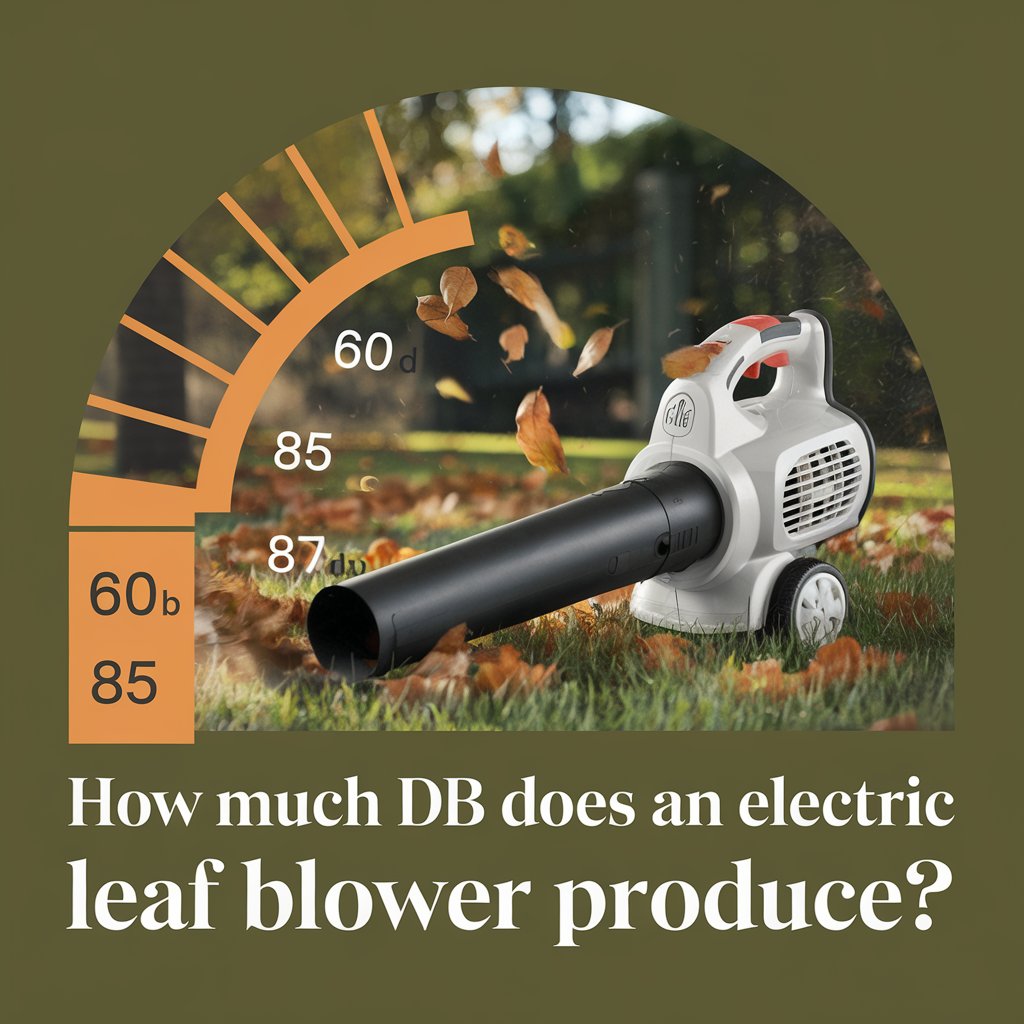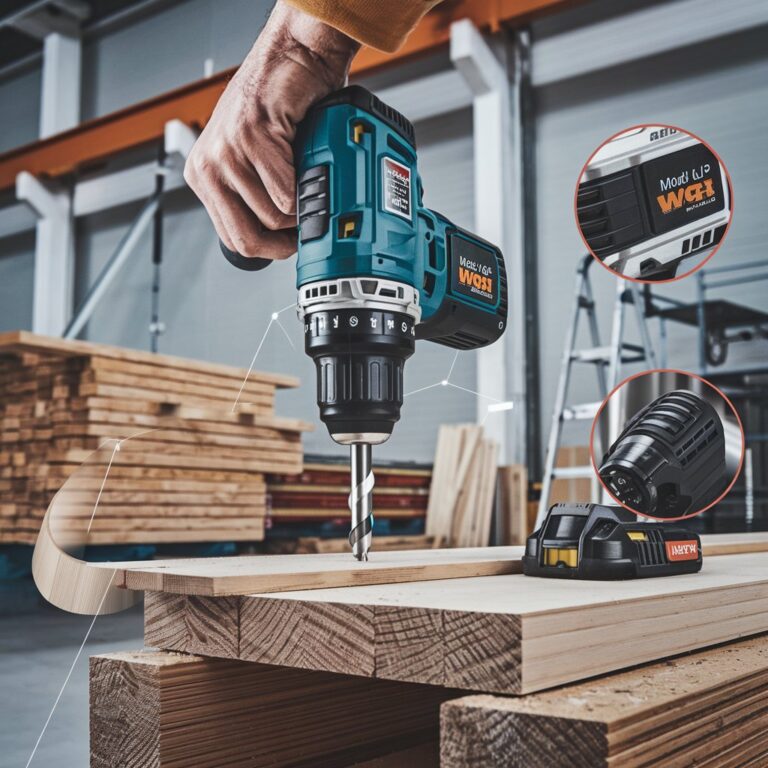How Much Dnb Does Electric Leaf Blower Produce?
Electric leaf blowers have become a popular tool for homeowners due to their efficiency in clearing leaves and debris from yards, sidewalks, and driveways. However, one important consideration for users is the noise level, measured in decibels (dB), that these machines produce. In this comprehensive article, we’ll explore everything about the noise output of electric leaf blowers, the factors that influence it, and how it affects both the environment and human hearing. We’ll also include some tips on how to reduce exposure to loud noise and answer frequently asked questions about the topic.
What Is dB and Why Does It Matter?
The term “dB” refers to decibels, a unit that measures the intensity of sound. The decibel scale is logarithmic, meaning that a small increase in dB represents a large increase in noise. For example, a noise level of 60 dB is about as loud as normal conversation, while a level of 90 dB is ten times louder.
Understanding the decibel levels of an electric leaf blower is crucial for several reasons:
- Hearing safety: Prolonged exposure to noise above 85 dB can cause hearing damage.
- Environmental impact: High noise levels can disturb wildlife and create a noisy environment for neighbors.
- Local regulations: Some cities and neighborhoods have noise ordinances that limit the use of loud equipment like leaf blowers.
How Much dB Does an Electric Leaf Blower Produce?
The noise output of electric leaf blowers typically falls between 60 and 85 decibels (dB). However, the exact dB level depends on several factors, including the brand, model, and power settings of the blower.
Low-Powered Electric Leaf Blowers
Low-powered electric leaf blowers, often used for light-duty tasks like clearing small patios or driveways, tend to produce noise levels in the range of 60 to 70 dB. This noise level is comparable to background music or a normal conversation.
Mid-Powered Electric Leaf Blowers
Mid-range models, which are more common for residential use, typically produce between 70 and 80 dB. This noise is similar to a busy street or vacuum cleaner. While it’s louder than a low-powered blower, it’s still manageable for most homeowners, especially when used for short periods.
High-Powered Electric Leaf Blowers
High-powered electric leaf blowers, designed for larger properties or more demanding tasks, can produce up to 85 dB. At this level, the sound is comparable to heavy traffic or a gas-powered lawnmower. It’s loud enough to be a concern for hearing protection if used for extended periods.
Factors That Influence the Noise Level of an Electric Leaf Blower
Several factors contribute to how much noise an electric leaf blower produces:
- Motor Power
- More powerful motors generally produce higher decibel levels. Blowers designed for industrial or heavy-duty use tend to be louder because they move more air.
- Airflow Speed and Volume
- The speed and volume of the airflow directly impact the sound generated by the blower. Blowers with higher CFM (Cubic Feet per Minute) ratings tend to be noisier.
- Design and Materials
- The overall design and materials used in the construction of the blower can affect its noise level. Premium models often include noise-dampening features or materials that reduce the overall dB output.
- Proximity to the User
- The further away you are from the blower, the quieter it will seem. This means handheld blowers, where the motor is close to the user, will seem louder than backpack models where the motor is further away.
How Noise from Electric Leaf Blowers Compares to Gas-Powered Models
Electric leaf blowers are generally quieter than gas-powered models. Most gas-powered blowers produce noise levels of 90 to 105 dB, which can be significantly louder than their electric counterparts. This difference in noise levels is one reason why many residential areas are beginning to restrict or ban the use of gas-powered leaf blowers, promoting the use of electric alternatives.
Noise Regulations for Leaf Blowers
Several states, including California and New York, have implemented strict noise regulations to limit the impact of loud outdoor equipment like leaf blowers. In some areas, it is illegal to operate a leaf blower that produces more than 65 dB of noise. Always check your local laws to ensure compliance with noise ordinances in your area.
How to Reduce Noise Exposure While Using Electric Leaf Blowers
If you use an electric leaf blower regularly, it’s essential to take steps to minimize your exposure to loud noise:
1. Wear Hearing Protection
- Even though electric blowers are quieter than gas-powered ones, they can still produce enough noise to damage your hearing over time. Wear earplugs or noise-canceling earmuffs to reduce your exposure to loud sounds.
2. Choose a Quieter Model
- When purchasing an electric leaf blower, look for models with a lower dB rating. Manufacturers often provide noise-level information in the product description. Quieter models may cost more but can help reduce the overall noise impact on your surroundings.
3. Use the Lowest Power Setting
- Many electric blowers have variable speed settings. Use the lowest setting that still gets the job done to reduce the noise level.
4. Operate During Permissible Hours
- To minimize disturbances, use your blower during designated hours allowed by your local noise ordinance. This is typically during the day, avoiding early mornings or late evenings when noise can be more disruptive.
5. Consider an Electric Sweeper for Light Jobs
- For small areas, consider using an electric sweeper rather than a full-sized leaf blower. These devices are quieter and are ideal for light-duty tasks.
Frequently Asked Questions (FAQs)
1. How loud is an electric leaf blower compared to other tools?
Electric leaf blowers generally produce 60 to 85 dB of noise, similar to a vacuum cleaner or heavy traffic. Gas-powered models, in comparison, can be as loud as 105 dB, which is comparable to a chainsaw or motorcycle.
2. Can prolonged exposure to leaf blower noise damage hearing?
Yes, prolonged exposure to noise levels above 85 dB can lead to hearing damage over time. Always wear appropriate hearing protection when using loud tools like leaf blowers.
3. Are there quieter alternatives to traditional electric leaf blowers?
Yes, some manufacturers produce low-noise electric leaf blowers designed specifically for use in noise-sensitive areas. These models often have lower CFM ratings but still provide effective performance for smaller tasks.
4. How can I find out the noise level of a leaf blower before buying?
Manufacturers usually provide noise-level information in the product specifications. You can also check online reviews or the manufacturer’s website for more details.
5. Why are gas-powered leaf blowers louder than electric models?
Gas-powered leaf blowers are louder because they use a combustion engine, which produces more noise than an electric motor. The high RPM and air volume of gas blowers also contribute to the increased noise.
Conclusion
Electric leaf blowers are an effective tool for maintaining your yard, but it’s essential to consider their noise levels. With dB outputs ranging from 60 to 85 dB, these machines can still be quite loud, especially during prolonged use. However, by choosing the right model, using appropriate hearing protection, and following local noise regulations, you can enjoy the benefits of a clean yard without damaging your hearing or disturbing your neighbors.
If you’re in the market for a new electric leaf blower, make sure to prioritize noise level as a key factor in your decision. With quieter options available, you can keep your yard in great shape without adding to the noise pollution in your community.






